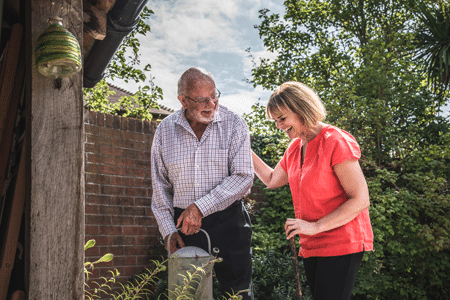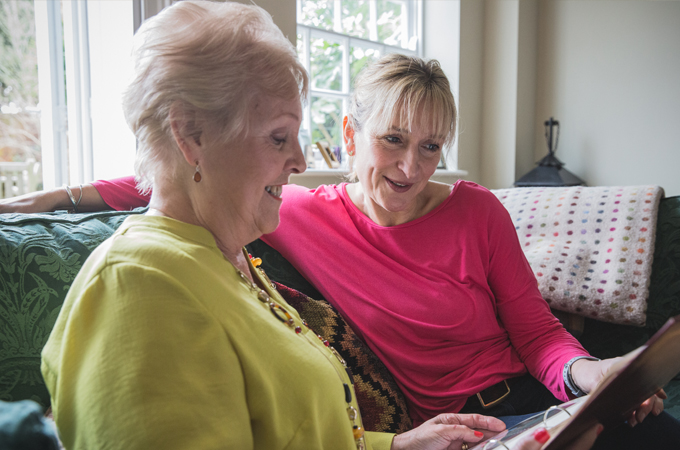See the Latest Blogs at Oxford Aunts
There are many dementia charities in the UK that support people diagnosed with dementia and Alzheimer’s, their caregivers and their families. These charities provide crucial financial and emotional support to families affected by dementia and conduct scientific and academic research into the prevention and treatment of the disease. Whilst there is currently no cure for Alzheimer’s disease or any other type of dementia, many of these charities are working on the research that will one day beat the disease. These charities often rely on public support to help fund educational resources, advocacy work and research. Whilst there are many local and regional charities throughout the UK worth supporting, here are some of the largest and most well-known dementia charities in
Read more
Keeping active is important at any age, particularly as we get older to maintain our health and reduce the risk of disease. It’s never too late to start getting out and about more, and these activities in and around Oxfordshire can help older adults get active, socialise, and have fun. Our guide for activities for the elderly in Oxfordshire includes something for everyone, ranging from health walks and fitness classes to social groups for all sorts of hobbies and interests. Whether you want to walk with the Oxford Ramblers or keep fit with Garden Runners, older people from all walks of life will find an engaging activity to suit their interests. Museums and Art Galleries Ashmolean Museum The Ashmolean is
Read more
At Oxford Aunts, we understand the importance of compassionate and dedicated home carers in providing exceptional care and support to those who need it. But you may be wondering – what exactly is a home carer? A home carer is a professional dedicated to enriching the lives of those they care for. They often become essential to their client’s daily routines by offering practical assistance, emotional support, and a friendly presence. Whether it’s helping with personal care tasks, offering medication reminders, or simply engaging in heartfelt conversations, a home carer ensures that clients feel valued, respected, and genuinely cared for. Here we explore what a home carer is and the role of our dedicated and passionate carers in enhancing our
Read more
At Oxford Aunts, we understand that cost is a significant consideration when it comes to cancer care in the UK. Families facing a cancer diagnosis often grapple with the financial implications of providing the best possible care for their loved ones. That’s why our experienced team is here to guide you through the costs of receiving cancer care in the comfort of your home. You do not have to navigate this journey alone. Once you’ve decided that home-based cancer care is right for you and your family member, our compassionate and knowledgeable care advisors are ready to assist you. We recognise that planning for the costs associated with cancer care can be a daunting task. This comprehensive guide provides advice
Read more
Personal alarms (or panic alarms) are an indispensable solution for maintaining the safety and independence of older adults that live at home alone. These compact and wearable devices allow you to contact emergency assistance at the touch of a button. This can be life-saving for the elderly with mobility or frailty concerns that are at risk for falls. Choosing the right personal alarm is an important decision that shouldn’t be taken lightly. It’s important to diligently research any personal alarm before purchasing to make sure it can meet the needs of you and your loved ones. You may also want to discuss your options with a doctor or licensed physical therapist. How do panic alarms work? Panic alarms, usually worn
Read more
Respite care is a short-term type of care that gives family members and caregivers a welcome break from their caregiving duties while a professional carer looks after their loved ones. This allows family carers to rest, relax and catch up on personal affairs so they can get back to their loved ones feeling rested and recharged. It is far less disruptive and unsettling for your loved one to receive respite care in the comfort of their home rather than endure the upheaval of leaving their home even for a short time. This can be incredibly upsetting for someone in their later years, particularly if they are living with a condition like dementia where comfort and familiarity are so important. At
Read more
The word ‘dementia’ is used to describe a set of symptoms that can include memory loss, difficulty problem-solving, reduced language skills, and behaviour changes. Dementia isn’t a disease; it’s an umbrella term for a set of symptoms caused by several different conditions, with Alzheimer’s disease being the most common. Learn more about what dementia is and its most common causes in our helpful guide. What is dementia? Dementia is a progressive condition, meaning it slowly gets worse over time. Symptoms like memory loss, problems communicating or finding the right words and confusion gradually get worse until they substantially affect everyday life. The most common symptoms of dementia include: Memory loss Communication and language difficulties Problems with reasoning or problem-solving Trouble
Read more
Parkinson’s disease, a progressive neurodegenerative disorder, has become an increasingly prevalent health concern worldwide. Named after the renowned British physician, Dr. James Parkinson, who first described the condition in 1817, Parkinson’s affects over 145,000 individuals in the UK. As researchers delve deeper into understanding this complex condition, the significance of early detection has emerged as a critical factor in managing its effects. Identifying the early signs and symptoms allows for timely intervention, which enables medical professionals to implement appropriate therapies that may slow down the disease’s progression and alleviate symptoms. Here we explore the early signs and symptoms of Parkinson’s disease, shedding light on both the motor and non-motor indicators that often precede the more pronounced stages of the disease.
Read more
End-of-life care is holistic support provided to people with life-limiting conditions and their loved ones. It is a form of palliative care offered to someone within the final weeks or months of their lives. The focus of end-of-life care is to provide bespoke support to the individual so that they can live in comfort and dignity in the time they have left. End-of-life care goes beyond merely addressing physical needs; it is a holistic approach that considers the emotional, spiritual, and social aspects of a person’s well-being. At Oxford Aunts, we understand that the end-of-life journey is a deeply personal and sensitive time for families. Our end-of-life care services are tailored to meet the unique needs of each individual, ensuring
Read more
Dementia affects people in different ways and experiencing strong emotions like agitation, confusion and aggression are common. Although these behaviours can be challenging and distressing for family members and caregivers, it’s important to know why these behaviours occur and what you can do to help. Here you’ll learn what to do when a person with dementia is agitated, including plenty of tips from our dementia care experts. Agitation in dementia Agitation is a common and challenging behavioural symptom experienced by people living with dementia. It encompasses a range of distressing behaviours, including verbal or physical aggression, restlessness, and increased confusion. The brain of a person living with dementia undergoes changes that can lead to difficulties in communication and emotional regulation
Read more












